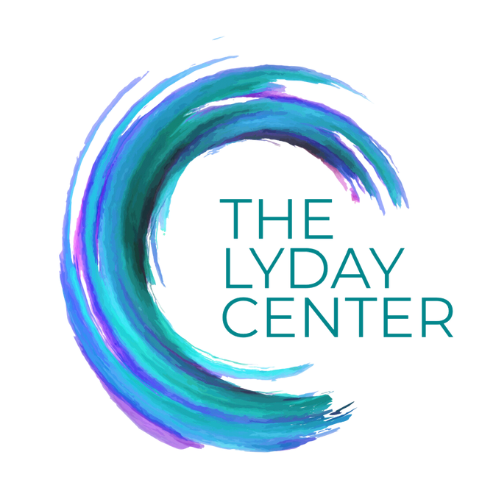Rest Is Medicine: The Functional Approach to Healing Insomnia
Sleep your way to health…
🌙 Rest Is Medicine: The Functional Approach to Healing Insomnia and Restoring Deep Sleep
In our modern world, sleep problems have become so common they’re almost expected. But just because it’s common doesn’t mean it’s normal.
If you’re tossing and turning at night, waking up wired at 3 a.m., or starting each day already exhausted — this post is for you.
Sleep is not a luxury. It’s foundational to healing. And when sleep breaks down, it’s often a sign that something deeper is going on.
🧠 The Missing Link: Neuroinflammation and Sleep Disruption
Many of the patients we see at The Lyday Center aren’t simply struggling with “bad sleep habits.” They're dealing with something much more complex — neuroinflammation.
Neuroinflammation is inflammation of the brain and central nervous system. It can be triggered by:
Chronic infections (e.g. Lyme, EBV)
Mold and mycotoxins
Head injuries or concussions
Gut dysbiosis and leaky gut
Emotional trauma and prolonged stress
Toxic exposures or autoimmune activity
When the brain is inflamed, it becomes hypersensitive. The pineal gland’s melatonin production drops, cortisol rhythms become erratic, and even tiny triggers (light, sound, worry) can keep you awake. The brain’s glymphatic system — responsible for overnight detox — also slows down, creating a vicious cycle of poor sleep and slower healing.
🔁 The Sleep–Healing Feedback Loop
Your body heals at night.
Deep, restorative sleep:
Balances hormones
Supports detoxification
Reduces inflammation
Rebuilds muscle and tissue
Resets the nervous system
Strengthens the immune system
Consolidates memory and emotional resilience
If you’re not sleeping, you’re not healing.
🌿 So, How Do We Rebuild Sleep Naturally?
At The Lyday Center, we approach insomnia with both science and soul. We treat root causes while helping you rebuild your relationship with rest. Here’s how:
1. 🕰️ Honor Your Body’s Natural Rhythm
Your body is wired to follow the sun.
The key to circadian reset?
Go to bed and wake up at the same time every day — even weekends
Aim to be in bed by 9:30–10:00 p.m., with lights out by 10:30
Expose your eyes to natural morning sunlight within 30–60 minutes of waking — this trains your brain to start its melatonin cycle
2. 📵 Eliminate Blue Light at Night
Light is a drug. After sunset, it tells your brain: stay alert!
Try:
Turning off screens at least 2–3 hours before bed
Using blue light blockers if exposure is unavoidable
Switching to amber or red light bulbs in the evening
Reading a paper book, journaling, or meditating instead of scrolling
3. 🧠 Cool the Inflamed Brain
If neuroinflammation is part of your story, we support it with:
Glutathione (IV or oral)
Omega-3s
Liposomal curcumin
Gut healing protocols
Mold/mycotoxin detoxification (if present)
Nervous system reset techniques (e.g. vagal toning, breathwork, neurotherapy)
4. 🧘 Create a Gentle Wind-Down Routine
Your brain needs a cue that it’s safe to let go.
Epsom salt baths (magnesium is a natural relaxant)
Herbal teas like chamomile, lemon balm, or passionflower
Gentle stretching or yin yoga
4-7-8 breathing or gratitude journaling
Keep lights dim and stimulation low after 7 p.m.
5. 💊 Use Functional Tools — Mindfully
We sometimes support sleep with targeted supplements, such as:
Magnesium glycinate or threonate
L-theanine (calming, non-sedating)
Melatonin (microdose, short-term use)
Phosphatidylserine (to lower nighttime cortisol)
GABA or 5-HTP (when indicated and supported by labs)
But remember: no supplement can fix a lifestyle that’s out of rhythm.
6. 🏃♀️ Move Your Body (But Not Too Late)
Daily movement helps regulate circadian and lymphatic systems.
Aim for:
Morning or early afternoon movement
Gentle walking after dinner
Avoid intense workouts within 3 hours of bedtime
✨ You Were Designed to Sleep
Your body wants to sleep. Your brain needs to heal.
If you’ve forgotten what it feels like to wake up refreshed, clear, and energized — we can help you remember.
Insomnia is not just a symptom. It’s a signal.
And once we address the root, the body knows how to restore itself.
Ready to reclaim restful sleep and deep healing?
📞 Book a consult at The Lyday Center and let’s get started.
Your healing begins with rest.
Let us help you find it again.

